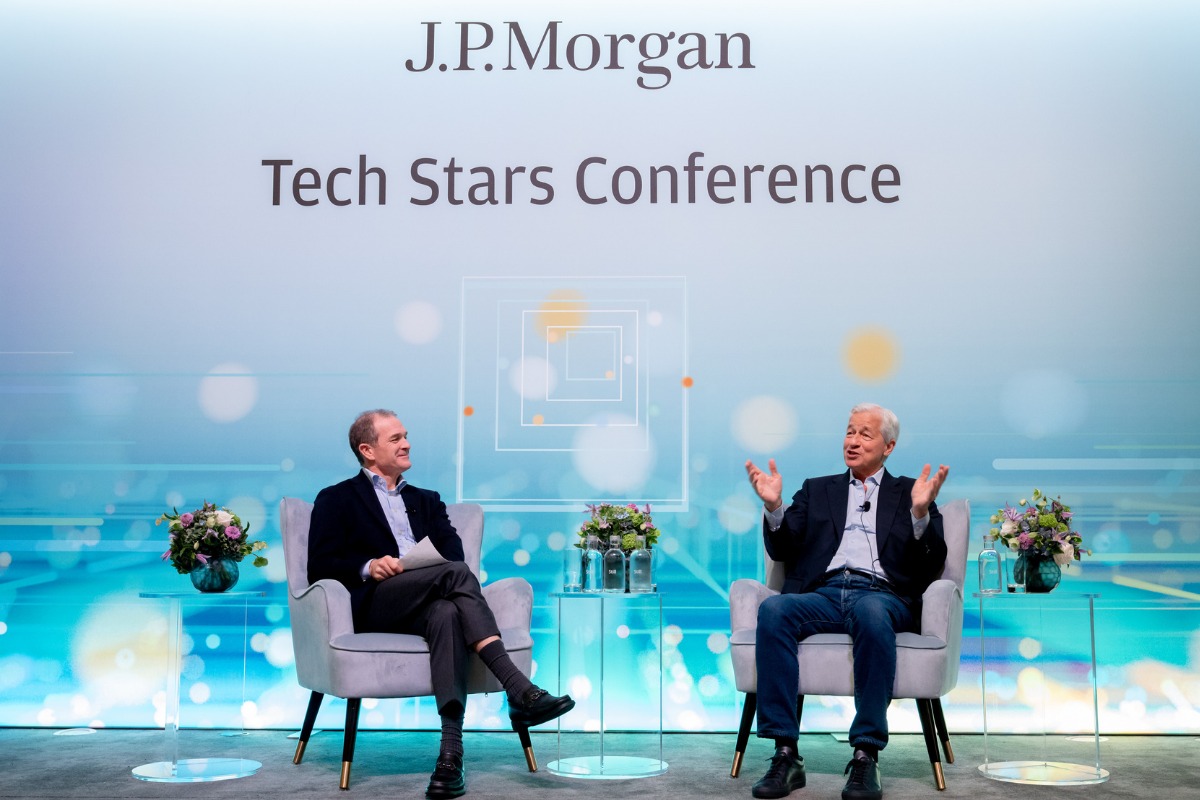Artificial intelligence-driven stock market investing has resulted in tech companies attaining major valuations, but top-ranking financial institutions are now warning that a sharp correction may be imminent.
The Bank of England, International Monetary Fund (IMF) and JPMorgan Chase & Co (NYSE: JPM) are the latest to sound the alarm.
J.P. Morgan CEO Jamie Dimon just said that he was “far more worried than others” and that a major decline in AI stocks could potentially occur as early as April of 2026. Some of the money currently being invested in AI will “probably be lost” he explained.
His grim prediction about overly inflated valuations comes after the Bank of England’s Financial Policy Committee compared the current state of the stock market niche to the infamous dotcom crash in the early 2000s.
“On a number of measures, equity market valuations appear stretched, particularly for technology companies focused on artificial intelligence,” the British banking house estimated.
IMF Managing Director Kristalina Georgieva echoed this sentiment in a speech on Wednesday.
‘Today’s valuations are heading toward levels we saw during the bullishness about the internet 25 years ago,” Georgieva elaborated.
“If a sharp correction were to occur, tighter financial conditions could drag down world growth, expose vulnerabilities, and make life especially tough for developing countries,” she added.
The Dutch financial institution Van Lanschot Kempen also issued a statement of caution, provided to CNBC.
“If you think of a bubble of about five stages, we’re probably in stage three,” stated the bank’s senior investment strategist Joost van Leenders.
The Nasdaq Composite Index fell 0.8 per cent on Oct. 9 after the predictions with AI-focused names underperforming. Furthermore, Magnificent 7 stock and major AI player NVIDIA Corp (NASDAQ: NVDA) (ETR: NVD) had fallen by 1.6 per cent by the time the market closed on Thursday.
The news follows an analysis from MIT in July that found 95 per cent of organizations are not receiving any returns from their investments in generative AI.
“Every bubble inevitably bursts, and in 2026, AI will lose its sheen, trading its tiara for a hard hat,” said Forrester analyst Sudha Maheshwari in a research report this week.
Nonetheless, the cohort of bearish predictions didn’t stop United States Secretary of the Treasury, Scott Bessent, from firing back at Dimon over his speculative assertions.
“Scott Bessent’s dismissal of Jamie Dimon’s fear mongering is spot-on,” commented one X account in a popular post. “Wall Street CEOs like Dimon profit from volatility and panic — they’re incentivized to predict doom while lobbying for policies that pad their own balance sheets.”
Read more: Nobel Prize in Physics awarded for groundbreaking quantum circuit research
Follow Rowan Dunne on LinkedIn
rowan@mugglehead.com













